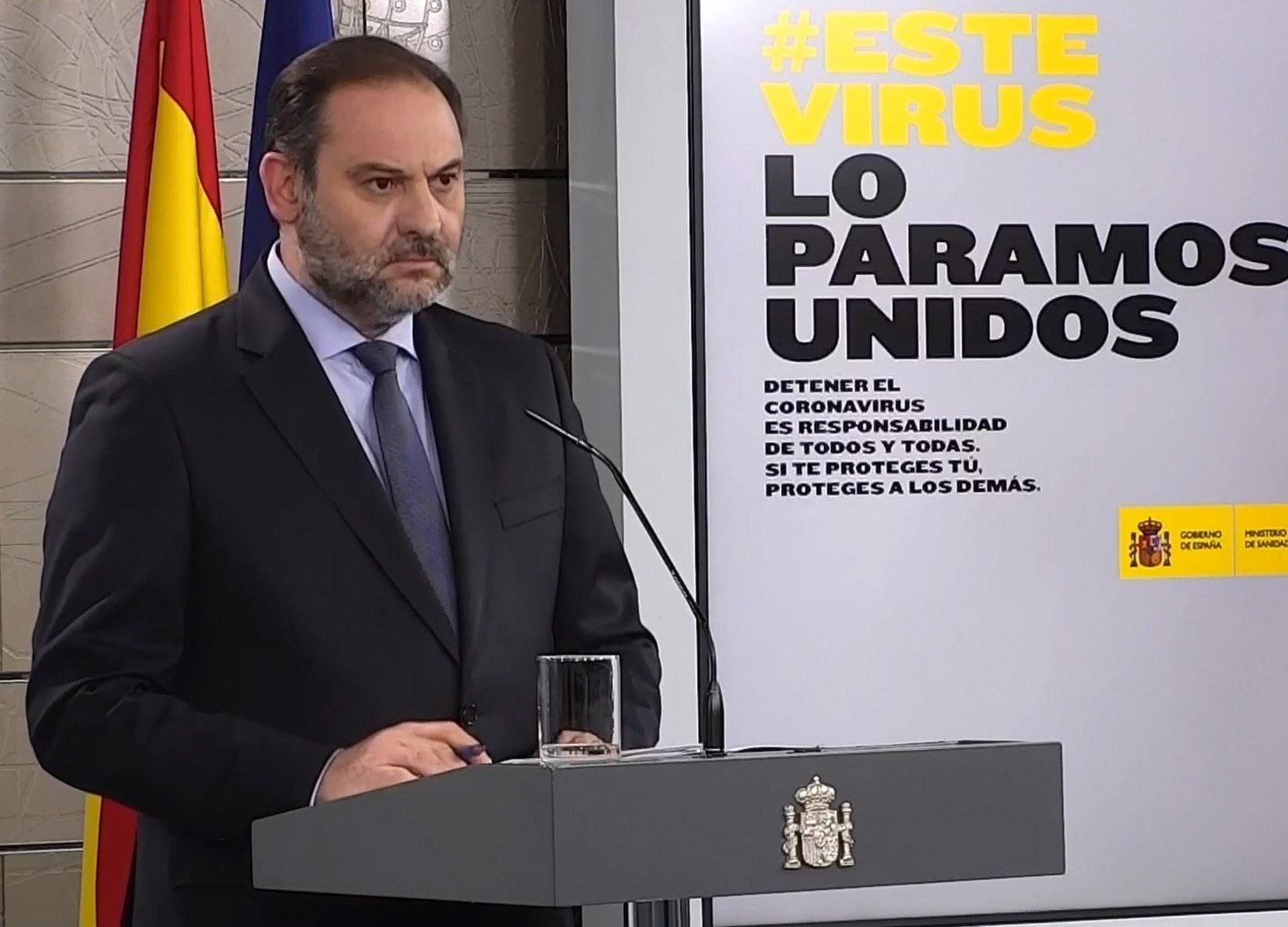The pro-Catalan language NGO Plataforma per la Llengua has complained that Spanish transport minister José Luis Ábalos "does not allow citizens to address him in Valencian". The evidence is included in a tweet by the group showing how the transport minister's office responded to an inquiry with a single sentence demanding that the letter be sent again in Castilian (that is, Spanish): "Good afternoon, you could send us the letter in Castilian. All the best." The answer is signed by the private secretary to the minister, who is also an MP for the province of Valencia.
‼️ El ministre @abalosmeco no permet que els ciutadans se li adrecen en valencià
— Plataforma per la Llengua🎗 (@llenguacat) June 29, 2020
❌ L'oficina del ministre de @fomentogob exigeix que les cartes se li enviïn en castellà, com la darrera que li ha fet arribar @OscarEscuder1, president de la @llenguacat
👉 https://t.co/N41VKjkp6Q pic.twitter.com/hocz0ZokZ2
Tweet by Plataforma per la Llengua complaining about the ministerial office's reply to the letter: "Minister Ábalos doesn't allow citizens to address him in Valencian."
The letter, which was written by Òscar Escudero, president of Platforma per la Llengua, was, in fact, addressing a second linguistic issue, centred on a new web portal for the rail operator Renfe, which differentiates between Catalan and Valencian, which the Plataforma argues is "linguistic separatism" - a "divide and rule" strategy against two variants of the same language which acts to weaken both of them. Escudero sent a letter to the ministry expressing "concern that the current Spanish government continues to apply these practices to Valencian-speaking citizens by making this distinction."

However, the NGO says it received a response the following day and was upset to find that the demand to use Castilian "did not give any reason, and nor was it addressed politely using 'please' or phrased as a question." The Plataforma asserts that the minister's office is simply giving orders and being insensitive regarding co-official languages. In addition, they give the view that, since Ábalos is Valencian himself, he should be the first to "promote his own language". Currently, the Spanish state differentiates Catalan from Valencian in 43 of 97 public web portals which have a Catalan version.
Other controversies
These are not the only linguistic controversies to have appeared in recent days. The Valencian high court has just declared null and void several articles of the Valencian government's decree on the creation and operation of its Office of Linguistic Rights. The judge partially upheld the appeal presented by the Association for the Defence of Castilian against the decree, which argued that the text sought to defend "only" the rights of Catalan and Valencian speakers to express themselves in the Valencian autonomous community, and left Spanish speakers "unprotected". Accordingly, the ruling nullifies several points of the decree considering which, among other aspects, are ruled to go beyond their allowed function of "advisory" and attempt to regulate.
And all of this just days after the Spanish Supreme Court not only rejected the Valencian government's policy of using of its own language as the "normal and general" language within its adminstration, but also laid down that for official communication between the public authorities in Valencia, Catalonia and the Balearic Islands, the Spanish language must be used - despite the fact that all three of these territories belong to the països catalans which share their own common language.

